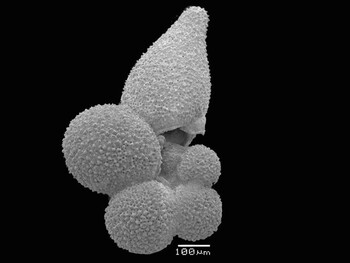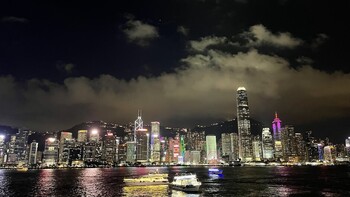
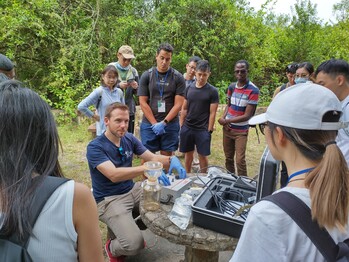
HKU eDNA & eEcology lab Initiated the First International eDNA Workshop in Hong Kong Empowering Next-Generation eDNA Researchers
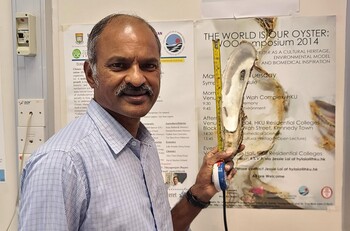
HKU Marine Scientists Joined Hands with the Local Oyster Industry to Set up the first Oyster Hatchery in Hong Kong, cultivating Native Seeds to Sustain Oyster Aquaculture
---end----

The First Edge Computing AI Chip in Hong Kong for Real-time Video Analytics in Child Protection and Patient/Elderly Risks Monitoring during Omicron Outbreak
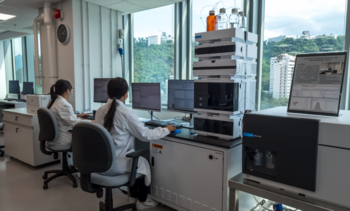
Making advanced cancer become a treatable chronic disease: The key mission of HKU-based world-class laboratory - The Laboratory for Synthetic Chemistry and Chemical Biology
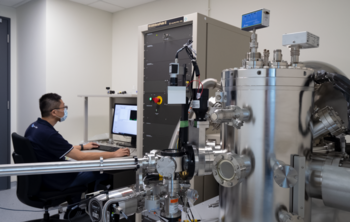
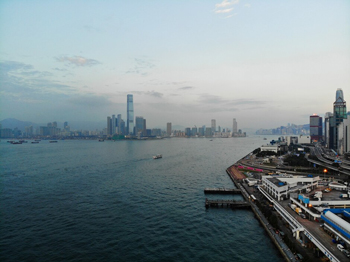
Has Hong Kong lost its luster? HKU Ecologists reconstructed Hong Kong's marine ecosystem over the last 100 years Worried that climate and metal pollution may have a negative impact on the biodiversity

Sweeteners in common food: HKU-led research revealed hidden sources of non-nutritive and low-calorie sweeteners in pre-packaged foods in Hong Kong
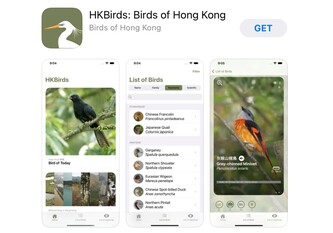
From flat screen to nature via birding: HKU Ecologist and the Hong Kong Bird Watching Society jointly developed a Mobile App "HKBirds: Birds of Hong Kong", facilitating a bird-watching learning platform
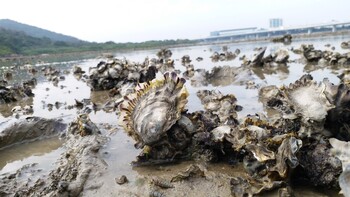
New research makes strong case for restoring Hong Kong’s lost oyster reefs — Seven square meters of a HK oyster reef can filter up to one Olympic swimming pool of water in a single day

HKU chemists and collaborators develop a new drug discovery strategy for “undruggable” drug targets
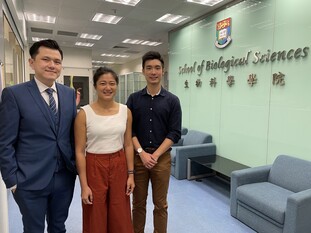
HKU dietetics research identifies low GI diet a potential Type 2 diabetes prevention strategy

HKU scientists reveal an antirheumatic metallodrug can resurrect “last-resort” antibiotics to kill multi-drug resistant superbugs
Was Hong Kong once a coral reef paradise? HKU researchers reveal the historic range and diversity of corals in the Greater Bay area for the last 5,000 years
HKU scientists and microbiologists jointly discover a novel antiviral strategy for treatment of COVID-19 using existing metallodrugs

HKU architects and marine scientists co-develop novel 3D printed 'reef tiles' to repopulate coral communities and conserve biodiversity in Hong Kong
Successful launch of the world’s first soft X-ray satellite with “Lobster-Eye” imaging technology: The Dark Matter Hunter
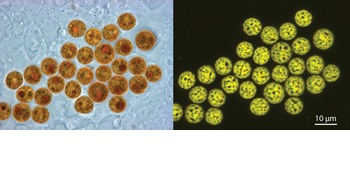
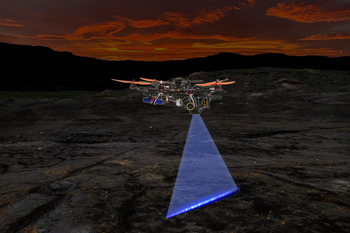
HKU-codeveloped automated laser-scanning ‘hunter drone’ seeks out fossils, minerals and biological targets
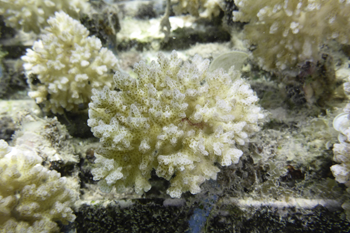
Dimethylsulfoniopropionate concentration in coral reef invertebrates varies according to species assemblages

Mangroves at risk of collapse if emissions not reduced by 2050, international scientists predict
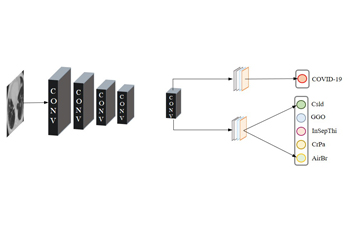
Statisticians have developed an online diagnostic system with AI technologies based on COVID-19 chest CT dataset for screening suspected cases
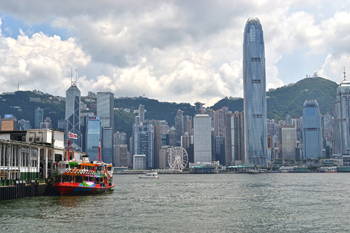
Study shows that sea level could rise more than 1m by 2100 if emission targets are not met
HKU ecologists and international team discovered ongoing and future tropical diversity decline
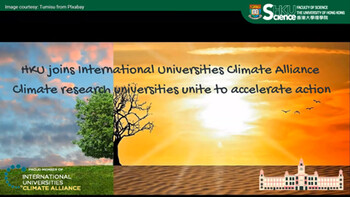
HKU joins International Universities Climate Alliance
Climate research universities unite to accelerate action
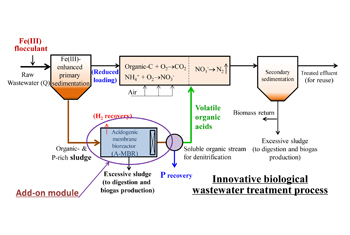
HKU researchers develop novel wastewater treatment process to effectively remove health hazardous chemical contaminants

HKU Paleontologists Discovered a Solid Evidence of Formerly Elusive Abrupt Sea-level Jump
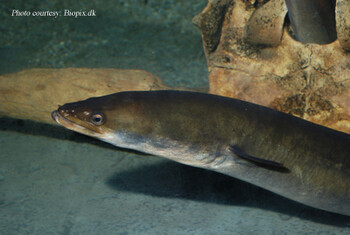
Endangered species on supermarket shelves: HKU’s Conservation Forensics Lab reveals the surprising prevalence of European Eel in Hong Kong’s food supply
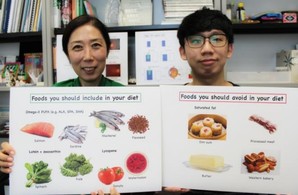
HKU research team found poor dietary habits may increase the risk factors for AMD development
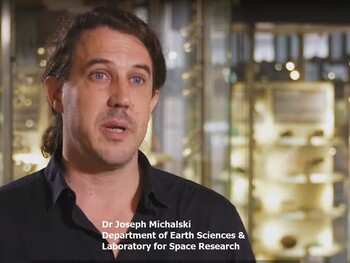

HKU conservation biologists urge for needs of win-win strategies to tackle proximal and horizon threats to biodiversity

HKU Faculty of Science Laboratory for Space Research gains access to mainland national observatory facilities for the entire Hong Kong astronomer community
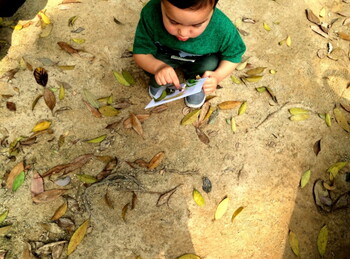
Connection of children to nature brings less distress, hyperactivity and behavioural problems – now measurable with a novel scale developed by HKU scientist
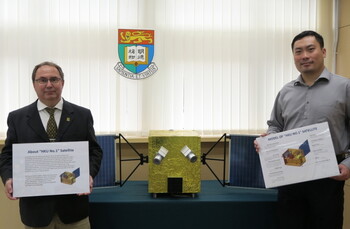
Reaching out for the Moon, Mars and the Stars – HKU sets up Laboratory for Space Research in Greater China
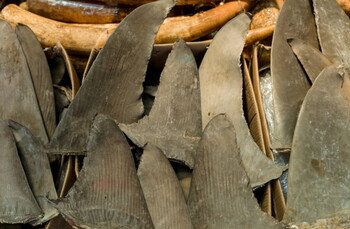
Out of control means off the menu: HKU-led study shows that shark fin trade is unsustainable
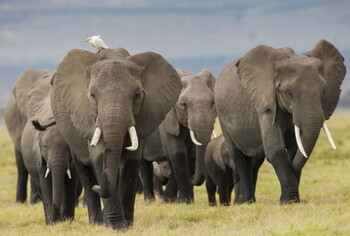
Mismatch in timing of ivory bans in China and Hong Kong undermines the conservation of African elephants

Earth Science study finds Hong Kong’s appetite for meat causes the city to be one of the world’s highest greenhouse gas emitter

HKU postgraduate discovers important interaction between land-use and climate change in driving species distribution shifts

HKU’s astronomers interpret the geminid meteor shower and promote stargazing manners and dark sky conservation
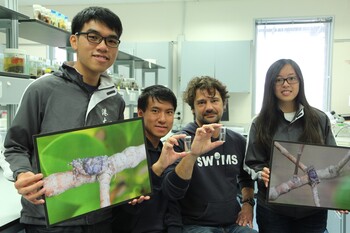
HKU marine ecologists discover and name the first endemic tree-climbing crab, Haberma tingkok, from Tolo Harbour

The “Hong Kong population” of Chinese white dolphins re-defined: The latest HKU study clarifies how many dolphins there are in Hong Kong waters

HKU biologist reveals important role cities play in conservation of threatened species - Hong Kong home to critically endangered yellow-crested cockatoo


